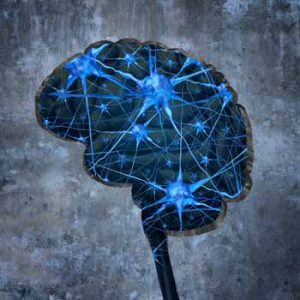
More evidence that low-calorie sweeteners are bad for your health
Studies show that artificial sweeteners can raise the risk of hypertension, metabolic syndrome, type 2 diabetes and heart disease, including stroke.

Natural Health News — New research indicates that persistent inflammation in the body affects the brain in ways that are connected with stubborn symptoms of depression.
About one third of people with depression also have high levels of inflammation markers in their blood, and according to the study published in Molecular Psychiatry, these new findings bolster the case that the high-inflammation form of depression is distinct from other types and requires a different approach to treatment.
» Researchers have found that those with hard to treat depression also suffer from inflammation.
» This inflammation disrupts communication between key areas in brain and in particular leads to a condition called anhedonia – the inability to experience pleasure.
» Antidepressant treatment does not work for this type of depression, instead measures to address the inflammation are likely to be more successful.
Inflammation blocks pleasure signals
One of the core symptoms of hard to treat depression is anhedonia, the inability to experience pleasure or an inability to derive enjoyment from everyday activities, such as food or time with family and friends.
“Some patients taking antidepressants continue to suffer from anhedonia” says says lead author Jennifer Felger, PhD, assistant professor of psychiatry and behavioural sciences at Emory University School of Medicine and Winship Cancer Institute.
“Our data suggest that by blocking inflammation or its effects on the brain, we may be able to reverse anhedonia and help depressed individuals who fail to respond to antidepressants.”
Looking deeper
The researchers looked at 48 patients with depression, measuring levels of the inflammatory marker CRP (C-reactive protein) in the blood as well as using MRI brain imaging to look deeper into brain function in relation to inflammation.
During the brain imaging portion of the study, participants were not taking antidepressants, anti-inflammatory drugs or other medications for at least four weeks.
Results showed that high levels of the inflammatory marker CRP (C-reactive protein) were linked with poor connectivity – essentially a “failure to communicate” – as seen through brain imaging, between regions of the brain important for motivation and reward.
Blocking brain connectivity
In patients with high CRP, Felger and her colleagues observed a lack of connectivity between the ventromedial prefrontal cortex and the ventral striatum. In contrast, patients with low CRP had robust connectivity.
High CRP levels were also linked with patients’ reports of anhedonia. Low connectivity between another region of the striatum and the ventromedial prefrontal cortex was linked to a different symptom: slow motor function, as measured by finger tapping speed.
A previous study of people with difficult-to-treat depression found that those with high inflammation (as measured with CRP), but not other participants in the study, improved in response to the anti-inflammatory antibody infliximab. Together these studies suggest that tackling inflammation may be a way to approach hard to treat depression.
New options for treatment
Felger says her trial may lead to new therapies to treat anhedonia in high-inflammation depression. She is, of course, speaking of pharmaceutical therapies.
However other approaches such as acupuncture, diet changes, mind-body therapies such as mindfulness meditation , addressing sleep problems, supplementing key nutrients such as zinc and lutein have been shown to help reduce inflammation in the body and a more holistic approach to treatment may help reduce reliance on pharmaceuticals.
Of these diet is arguably the most crucial. There is evidence to show that the Western Pattern way of eating – high in fats, sugars, salt and processed foods – leads directly to higher levels of inflammation in the body, while adopting a healthier diet that focuses on high quality nutrition and fibre can help reduce inflammation.

Please subscribe me to your newsletter mailing list. I have read the
privacy statement